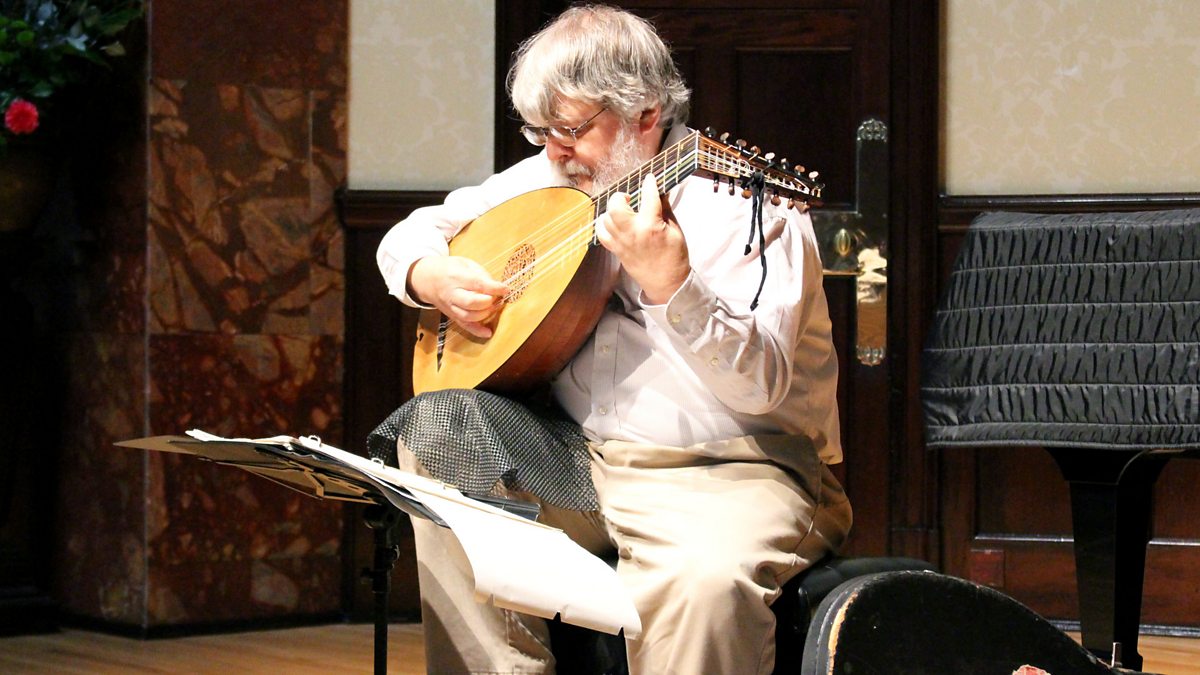Live from Wigmore Hall, London, Paul O'Dette plays lute music from 17th-century England, including works by Byrd, Johnson, Dowland and Bacheler
Introduced by Sara Mohr-Pietsch.
Byrd: La Volta; Pavana Bray; Galliarda; The Woods So Wild, Lord Willoughby's Welcome Home
Johnson: Omnino Galliard; Delight Pavan and Galliard; Carman's Whistle
Dowland: Farewell (on In Nomine); Farewell
Bacheler: Daniells Jigge; Pavan and Galliard; Mounsieurs Almaine
Paul O'Dette (lute).
Introduced by Sara Mohr-Pietsch.
Byrd: La Volta; Pavana Bray; Galliarda; The Woods So Wild, Lord Willoughby's Welcome Home
Johnson: Omnino Galliard; Delight Pavan and Galliard; Carman's Whistle
Dowland: Farewell (on In Nomine); Farewell
Bacheler: Daniells Jigge; Pavan and Galliard; Mounsieurs Almaine
Paul O'Dette (lute).






 Magnificent - many thanks, Richard.
Magnificent - many thanks, Richard.
 - the one other thing I should add is that by lowering their G string to F#, guitarists can replicate the intervals of the strings or courses of the 6-course lute (and for that matter the vihuela) - enabling easy transfer of music from one to the other. And by placing a capo on the second fret, they can approximate the pitch. That is for those like me who find playing an actual lute too difficult
- the one other thing I should add is that by lowering their G string to F#, guitarists can replicate the intervals of the strings or courses of the 6-course lute (and for that matter the vihuela) - enabling easy transfer of music from one to the other. And by placing a capo on the second fret, they can approximate the pitch. That is for those like me who find playing an actual lute too difficult
Comment